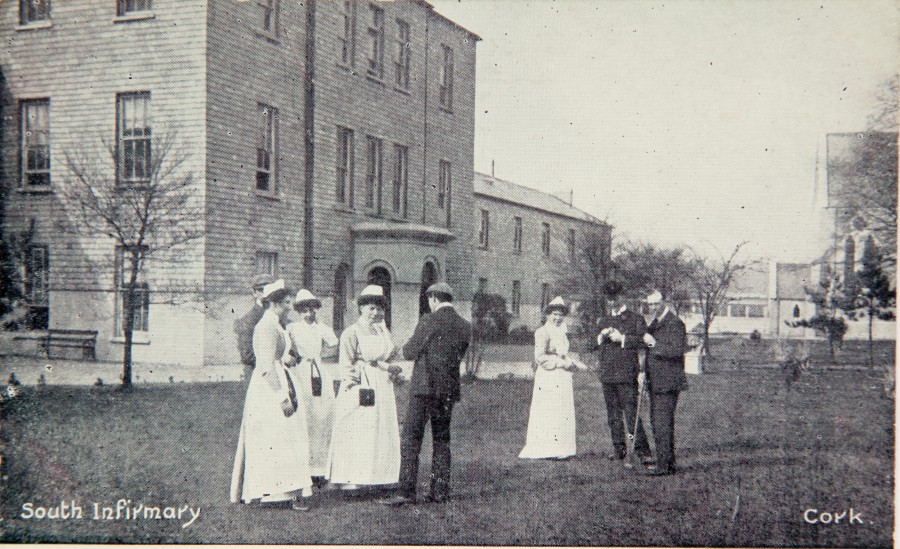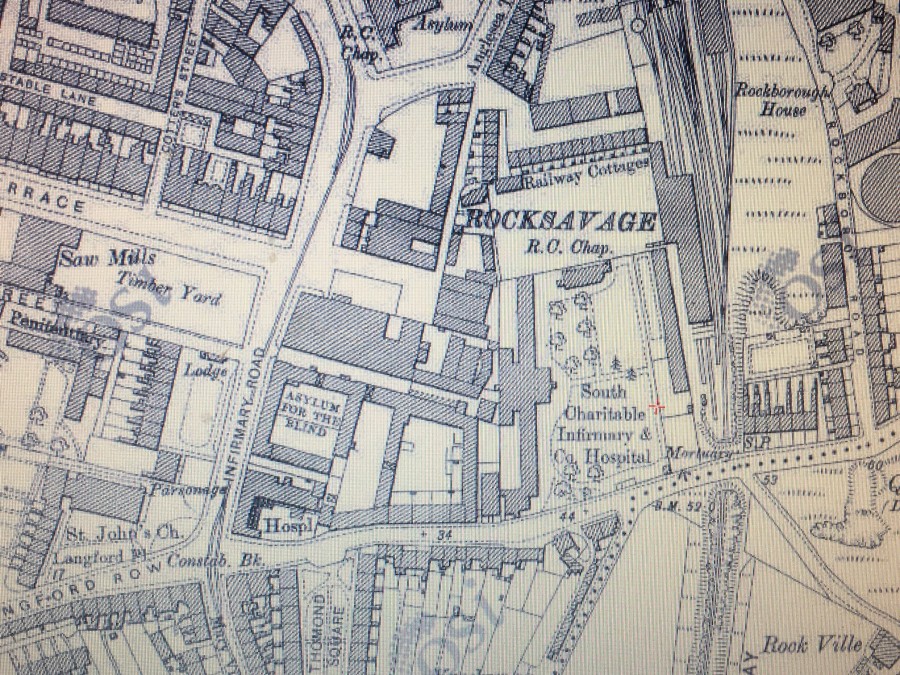
Kieran’s Our City, Our Town Article,
Cork Independent, 20 February 2020
Remembering 1920: Calls to Fund Public Health System
Mid-February 1920 coincided with the annual general meeting of the Committee of Management of the South Infirmary, which was held in the Boardroom of the institution. The annual report was submitted by Mr J C McNamara and gives a further insight into the health care conditions of the time and the calls for investment to support the work of doctors and nurses. The number of patients-treated during the previous year was as follows – external attendances, 8,492; intern patients, 1,190 and the daily average of beds occupied stood at 71 per cent.
Special attention was made at the meeting of the great services rendered by the hospital during the epidemic of influenza, which swept over the country in February and March 1919. A considerable number of those struck down, Mr McNamara detailed, had not the accommodation or the means for treatment in their own homes. Their only choice in many cases was to flock to their immediate hospital for treatment. Under normal conditions it was not usual or desirable to admit highly infectious diseases into general wards, but in the circumstances, the Committee of the hospital felt that it was the duty of the hospital to render all help possible. Mr McNamara records that the Committee had much pleasure in recording their admiration of the conduct of the nurses on duty in the medical wards during the epidemic. They gave what he described as “an exhibition of courage and self-sacrifice for which no praise can be too high”.
The annual report, highlights of which were published in the Cork Examiner, praised the work of Dr W P Lehane, House Surgeon, who received much valued assistance from the senior resident students, Mr D Healy and Mr A Buckley. Thanks were also given to the hard-working Matron Sister Mary Albous Fogarty.
The principal concern of the Hospital Committee was that the expenditure was greater than the income. Public hospital care was free to people. Only for local philanthropists, costs over the previous decades would not have been met or the growth of services within the South Infirmary would not have occurred. The number of free beds available could not have been maintained, nor necessary additions to the buildings carried out. It was even hoped that that the new timber boards with inscribed names on it might inspire more people to donate. Indeed owing to the serious financial position at the beginning of 1919, when £1,395 was due to the bank, the Hospital Committee decided that a special appeal should be made for funds to pay off this very heavy debt. Within a short time £1,143 was received, most of this sum being sent-by the annual subscribers.
In the annual report, the Hospital Committee made grateful reference to the financial help received from the employees of one of the city’s inns and appealed for a far more generous support from the various staffs of the numerous large establishments in the city and county.
The students of the hospital organised an open-air Fete and Bazaar and inaugurated a fund for building the Children’s Wards. The good attendance each evening resulted in £1,656 being raised. The report also acknowledged a munificent donation of £100 2s 8d (which is included in the amount, £1,656, already mentioned) from the people of Mallow for the latter fund. The collection was organised by Miss Wallace, a constant and generous friend of the hospital. Architect, Mr J F McMullen had already drawn up plans for the new children’s building, which was also to include two new x-ray rooms. A new porters lodge house was also planned to be built out of the fund.
Towards the end of 1919 a few members of the Committees of the North and South Infirmaries held a conference or discussion with the Cork United Trades and Labour Council. There, it was pointed out that owing to the enormous rise in fixed cost of maintaining the hospitals, it was necessary, if the full number of beds were to be kept available, that the income must be considerably increased. A call was made that the different societies should arrange regular collections amongst their members, for the benefit of the Infirmaries. A discussion also took place that one penny be given by every worker through the unions towards the maintenance of the North and South Infirmaries. No agreement was reached at that meeting to accept the one penny subscription.
Rev Dean Babington, in seconding the report, said he had attended two hospital meetings on the previous day and the same problem presented itself as the one which came up there. The problem was not one of want of doctors, nurses, or patients, but of money to keep the institutions going. They were in a period of transition, and he hoped that when prices began to come down, they would be better off than they were before the war. According to the Reverend “the working classes with higher and better standard of living, would be anxious and willing when they took their new place in society, to do their part in supporting the institutions of the country and becoming a subscriber”.
Captions:
1036a. Postcard of former entrance to South Infirmary, c.1910; this main block has now been replaced by the modern hospital (source: Cork City Through Time by Kieran McCarthy & Dan Breen).
1036b. Map of the grounds of South Infirmary, c.1910 (source: Cork City Library)
